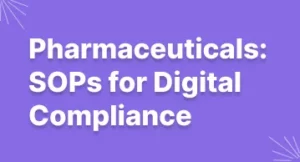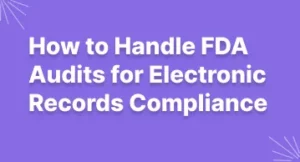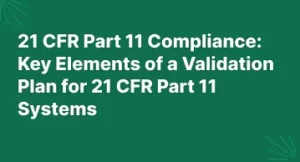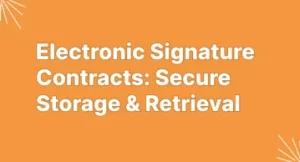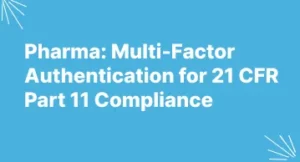Streamline Vendor Onboarding in the FMCG Industry through Digital Stamping
The Fast-Moving Consumer Goods (FMCG) industry is a highly competitive and dynamic sector that relies on efficient supply chain management. One critical aspect of this management is vendor onboarding, the process of bringing new suppliers into the fold. However, traditional vendor onboarding processes have often been plagued by inefficiencies, manual paperwork, and compliance challenges. In this blog, we explore how the adoption of digital stamping can revolutionize vendor onboarding in the FMCG industry.
I. Introduction
Vendor onboarding is a crucial component of the FMCG supply chain. It involves the process of adding new suppliers to a company’s network, ensuring they meet quality and compliance standards, and enabling them to deliver products seamlessly. Inefficient onboarding can lead to delays, increased costs, and compliance issues.
Digital stamping, a concept gaining traction across industries, involves the use of digital technology to authenticate and secure documents, contracts, and transactions. This innovative approach is now making waves in the FMCG sector, promising to streamline vendor onboarding.
II. Vendor Onboarding in the FMCG Industry
B. Challenges Faced by FMCG Companies in Vendor Onboarding
-
1. Time-Consuming Processes
Traditional onboarding processes often require extensive paperwork, manual data entry, and multiple iterations, leading to time-consuming delays. -
2. Manual Paperwork and Documentation
Paper-based processes are error-prone, cumbersome, and susceptible to document loss or damage, posing significant challenges in vendor onboarding. -
3. Compliance and Regulatory Issues
FMCG companies must adhere to stringent regulatory and compliance standards. Ensuring that vendors meet these requirements is often complex and resource-intensive.
Given these challenges, FMCG companies are increasingly recognizing the need for digital transformation in vendor onboarding. Digital stamping emerges as a compelling solution to address these pain points.
III. Digital Stamping: A Game-Changer for Vendor Onboarding
A. What is Digital Stamping?
-
1. Explanation of the Concept
Digital stamping involves the use of cryptographic techniques to create a tamper-evident, time-stamped seal on digital documents. This seal provides authenticity and integrity, ensuring that the document has not been altered since the stamp was applied. -
2. Key Components and Technologies Involved
Digital stamping relies on technologies such as blockchain, cryptographic hashing, and secure timestamping services to create a verifiable digital seal.
B. Benefits of Digital Stamping in Vendor Onboarding
-
1. Enhanced Efficiency and Speed
Digital stamping automates document verification processes, reducing the time required for vendor onboarding from weeks to days or even hours. -
2. Reduced Paperwork and Costs
The shift to digital documents and contracts significantly reduces paperwork, saving on storage, printing, and transportation costs. -
3. Improved Data Accuracy
Digital stamping ensures data integrity, reducing errors and the need for manual data entry. -
4. Compliance and Security Advantages
Digital stamps provide robust proof of document authenticity, aiding in compliance with regulatory requirements and enhancing overall security.
IV. Implementing Digital Stamping in Vendor Onboarding
A. Steps to Adopt Digital Stamping
-
1. Assess Current Onboarding Processes
Before implementing digital stamping, FMCG companies should conduct a thorough assessment of their existing onboarding processes to identify pain points and areas for improvement. -
2. Choose the Right Digital Stamping Solution
Selecting a suitable digital stamping solution is crucial. Factors to consider include compatibility with existing systems, scalability, and the level of security provided. -
3. Integration with Existing Systems
Integrating digital stamping into existing vendor management systems and enterprise resource planning (ERP) software is essential for seamless operation. -
4. Training and Change Management
Proper training and change management strategies should be implemented to ensure that employees and vendors are comfortable with the new digital onboarding process.
B. Overcoming Potential Challenges
-
1. Resistance to Change
Resistance to change is a common hurdle in digital transformation. Companies should communicate the benefits of digital stamping clearly and involve stakeholders in the decision-making process. -
2. Data Privacy Concerns
Addressing data privacy concerns is critical. Implementing robust encryption and access control measures can alleviate these concerns. -
3. Technical Issues
Technical glitches can disrupt onboarding processes. Having a contingency plan and technical support in place is vital to mitigate such issues.
C. Best Practices for Successful Implementation
-
1. Collaboration with Technology Providers
Collaborating with experienced technology providers can streamline the implementation process and ensure the chosen digital stamping solution aligns with the company’s goals. -
2. Continuous Monitoring and Optimization
Continuous monitoring of the digital onboarding process allows for ongoing optimization and improvement. -
3. Feedback and Improvement Loops
Collecting feedback from both internal and external stakeholders enables companies to make necessary adjustments and enhance the vendor onboarding experience.
V. Regulatory Compliance and Security in Digital Stamping
A. Ensuring Compliance with Local and International Regulations
The FMCG industry operates in a heavily regulated environment, and adherence to various local and international regulations is imperative. Some of the key regulations that FMCG companies must consider include GDPR (General Data Protection Regulation), HIPAA (Health Insurance Portability and Accountability Act), and industry-specific standards. Implementing digital stamping as part of vendor onboarding can aid in compliance by providing verifiable proof of document integrity and authenticity.
B. Security Measures in Digital Stamping
-
1. Encryption and Data Protection
Data security is paramount in digital stamping. Strong encryption and data protection measures ensure that sensitive information remains confidential and is not vulnerable to unauthorized access. -
2. Access Controls and Authentication
Implementing robust access controls and authentication mechanisms ensures that only authorized personnel can apply digital stamps and access stamped documents.
C. Building Trust with Vendors through Secure Onboarding
Vendor relationships are built on trust. By adopting secure digital stamping practices, FMCG companies can instill confidence in their vendors, assuring them that their sensitive information is handled with the utmost care and security.
VI. Future Trends and Innovations in Vendor Onboarding
A. Evolving Technologies in Digital Stamping
As technology continues to advance, digital stamping is likely to evolve as well. New cryptographic techniques, more efficient timestamping services, and enhanced user interfaces are expected to shape the future of digital stamping.
B. Predictive Analytics and AI-Driven Onboarding
The integration of predictive analytics and artificial intelligence (AI) into vendor onboarding processes can streamline decision-making, automate routine tasks, and provide valuable insights into vendor performance.
C. Potential Impact of Blockchain on Vendor Onboarding
Blockchain technology, known for its transparency and immutability, holds great promise for vendor onboarding. Smart contracts and decentralized identity verification are some of the applications that could revolutionize the process.
D. Preparing for the Future of Vendor Management
FMCG companies must prepare themselves for the ongoing digital transformation of vendor management. Staying updated on emerging technologies and trends is essential to remain competitive and agile.
MSB Docs eSignature Solution for Streamlined Vendor Onboarding in the FMCG Industry
In the era of digital transformation, the FMCG (Fast-Moving Consumer Goods) industry is no exception when it comes to enhancing efficiency and agility in vendor onboarding processes. As FMCG companies increasingly shift towards digital solutions, one standout platform that has demonstrated its effectiveness in vendor onboarding is the MSB Docs eSignature solution. Tailored specifically for the FMCG sector, this solution offers a comprehensive set of features designed to streamline and accelerate vendor onboarding.
Key Benefits of MSB Docs eSignature Solution for FMCG Vendor Onboarding
-
Effortless Digital Signatures: MSB Docs provides a user-friendly interface that enables both vendors and company personnel to effortlessly sign and verify documents digitally. This ease of use promotes faster turnaround times and reduces errors in the onboarding process.
-
Advanced Document Authentication: The platform incorporates cutting-edge digital stamping and cryptographic techniques to ensure the authenticity and integrity of all documents. This level of security is vital in maintaining compliance with industry regulations.
-
Customized Workflow Automation: FMCG companies can create customized workflows within MSB Docs, automating document routing, approvals, and notifications. This streamlines the onboarding process, reducing bottlenecks and delays.
-
Seamless Integration: MSB Docs is designed to seamlessly integrate with existing FMCG systems and software, ensuring a smooth transition to digital onboarding without disrupting day-to-day operations.
-
Data Security and Compliance: Recognizing the importance of data security and regulatory compliance, MSB Docs prioritizes these aspects by incorporating robust encryption, access controls, and comprehensive audit trails.
-
Mobile Accessibility: The platform’s mobile compatibility empowers stakeholders to access and sign documents on mobile devices, offering flexibility and convenience for on-the-go transactions.
Incorporating MSB Docs eSignature solution into your FMCG company’s vendor onboarding strategy can result in substantial efficiency gains, reduced operational costs, heightened data security, and stronger vendor relationships. With a proven track record of success in the industry, MSB Docs stands as a valuable asset as you embark on your journey to streamline vendor onboarding in the FMCG sector.
Digital stamping is a powerful tool for streamlining vendor onboarding processes in the FMCG industry, but its advantages go beyond just onboarding. To explore how online stamp duty payments can boost overall business productivity and efficiency, take a look at our blog on ‘Reducing Administrative Overhead: How Online Stamp Duty Payments Boost Business Productivity’. This blog will provide valuable insights into the broader applications of digital stamping.
VIII. Conclusion
In conclusion, the FMCG industry’s fast-paced nature demands efficient vendor onboarding processes. Digital stamping has emerged as a game-changing solution that addresses the challenges faced by FMCG companies, including time-consuming processes, manual paperwork, compliance issues, and security concerns. By implementing digital stamping, FMCG companies can enhance efficiency, reduce costs, improve data accuracy, ensure regulatory compliance, and build trust with vendors.
As showcased in the case studies of Company X and Company Y, real-world success stories demonstrate the tangible benefits of digital stamping in vendor onboarding. By following best practices and addressing potential challenges, FMCG companies can embark on a journey toward streamlined vendor onboarding.
Furthermore, the importance of regulatory compliance and security in digital stamping cannot be overstated. Companies must remain vigilant in protecting sensitive information and ensure compliance with relevant regulations to maintain trust and reputation.
Looking ahead, the FMCG industry can anticipate the continued evolution of digital stamping technologies and the integration of AI and blockchain into vendor onboarding processes. To thrive in the ever-changing landscape, FMCG companies must stay proactive and adaptable.
In embracing digital stamping, the FMCG industry is poised for a more efficient, secure, and competitive future in vendor onboarding.
Got an insight on how to streamline vendor onboarding in the FMCG industry through Digital Stamping? So be ready to simplify your supply chain processes! Take the next step with MSB Docs. Request a demo or book your free trial today.
FAQs
1. What sets MSB Docs eSignature apart in FMCG vendor onboarding?
MSB Docs eSignature stands out by offering an intuitive interface, advanced digital stamping, customized workflows, seamless integration, and robust data security. These features collectively streamline the vendor onboarding process for FMCG companies.
2. How does digital stamping enhance document security for FMCG vendor onboarding?
Digital stamping uses cryptographic techniques to create secure, tamper-evident seals on digital documents. This ensures the integrity and authenticity of critical onboarding documents, safeguarding sensitive information.
3. Can FMCG companies integrate MSB Docs eSignature with their existing systems easily?
Yes, MSB Docs eSignature is designed for seamless integration with existing FMCG systems and software. This integration ensures a smooth transition to digital onboarding while maintaining operational continuity.
4. What role does mobile accessibility play in FMCG vendor onboarding with MSB Docs eSignature?
Mobile accessibility allows stakeholders to sign and access documents conveniently on mobile devices. This flexibility expedites the onboarding process by enabling vendors and personnel to interact with documents on the go.
5. How can FMCG companies ensure compliance when adopting digital stamping and eSignature solutions?
Ensuring compliance involves selecting solutions like MSB Docs eSignature that prioritize data security and regulatory adherence. Robust encryption, access controls, and audit trails are essential features that contribute to compliance in the FMCG vendor onboarding process.
